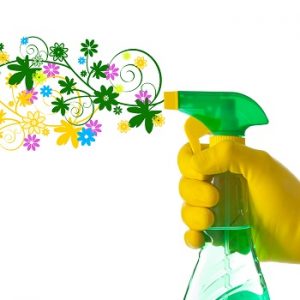
More evidence that low-calorie sweeteners are bad for your health
Studies show that artificial sweeteners can raise the risk of hypertension, metabolic syndrome, type 2 diabetes and heart disease, including stroke.

You don’t have to wait until spring to give your home a good clean.
The thought of cleaning can sometimes feel overwhelming, especially if you are sensitive to the strong perfumes or cleaning agents in commercial cleaning products.
But with the tide increasingly turning against irritant cleansing agents, things can be made much easier and more ecological at the same time by turning to nature.
If you are looking for a more satisfying way to refresh and clean your home, what better way to do this than with nature’s own oils – the essential oils. Not only will they fill your house with a lovely scent, they are easier on the environment as well.
There has been a tremendous amount of laboratory research done on essential oils, and their individual constituents, to determine their antimicrobial potential. Many if not most, essential oils contain constituents that inhibit or kill ‘germs’ – that is bacteria, viruses and fungi.
According to Valerie Ann Worwood in her classic book The Fragrant Pharmacy, some of the most effective essential oils for killing bacteria are: Cinnamon, clove, lemon, eucalyptus, lavender, pine, thyme, grapefruit and lime.
The majority of essential oils have antiseptic properties as well, which means they inhibit the growth of bacteria and other disease causing organisms, clearly a major concern in the home. In whichever method you use them, they not only make your environment smell delightful but make it safe as well.
Although most essential oils have a therapeutic life of about two years, the disinfectant qualities of eucalyptus oil actually improve with age.
Greening your cleaning regime with essential oils also has other benefits, namely the ability to support us both physically and emotionally. For example, during the winter when you are fighting respiratory attacks, you may choose eucalyptus or Douglas fir – both of which can help you breathe easier – for some of your cleaning blends.
Aroma has such a powerful effect on our feelings too. How many times have you visited other people’s houses and been welcomed with fresh scents, such as baking bread, wood burning fires, or coffee? These scents, rather than the harsh chemical smells of commercial cleaning agents, are the ones that inspire us. So if you’d like to know how to apply this to your home in an easy environmentally friendly way, read on.
Cleaning the kitchen and bathroom
Citrus oils are famous for their ability to de-gunk. You will certainly find commercial cleaners with orange oil as a primary ingredient because of this ability. For a brand range of cleaning purposes, lemon is an excellent go to ingredient.
Residue Scrub for stubborn stains
You’ll need:
Mix all ingredients together in a non-reactive bowl – glass is ideal. Apply mixture to the area to be cleaned and scrub with a non- stick scrubby sponge. Wipe the surface down with a dry, clean cloth to wipe off any residue. Try it on sticky splatter on the cooker hob (not on soft chrome or stainless steel however, as it may scratch) or oven door.
General all-purpose cleaning spray
You’ll need:
Mix all the ingredients in your spray bottle and shake well. Spray on surface and wipe off with clean cloth.
Tip: When washing out the fridge, freezer or oven, add 1 drop of lemon or the fruit essential oils – lime, grapefruit, bergamot, mandarin or orange -to the final rinse water. This will deodorise without permeating the fridge or whatever with an aroma.
Cleaning the living room
For regular carpet cleaning, it is simple to make up a carpet deodorising powder to sprinkle on the carpet before vacuuming.
Carpet powder
You’ll need:
Blend baking soda and essential oil drops with a whisk in a non-reactive bowl (e.g. glass) to mix thoroughly. Store in a sprinkle bottle. To use, sprinkle lightly over the carpet and wait 10 -15 minutes before vacuuming.
Upholstery freshening spray:
To freshen up stale upholstery use any of the following hydrolats:
Hydrolats – which are aromatic waters produced by the steam distillation of botanical material, usually during the production of essential oils – often come in 60 ml (2 fl oz) bottles with sprayer tops. But if yours doesn’t decant into a clean spray bottle and spray lightly on onto fabrics
Points to remember
Essential oils are safe and effective to use but it’s worth remembering these points when using them for home cleaning:
Happy cleaning!

Please subscribe me to your newsletter mailing list. I have read the
privacy statement